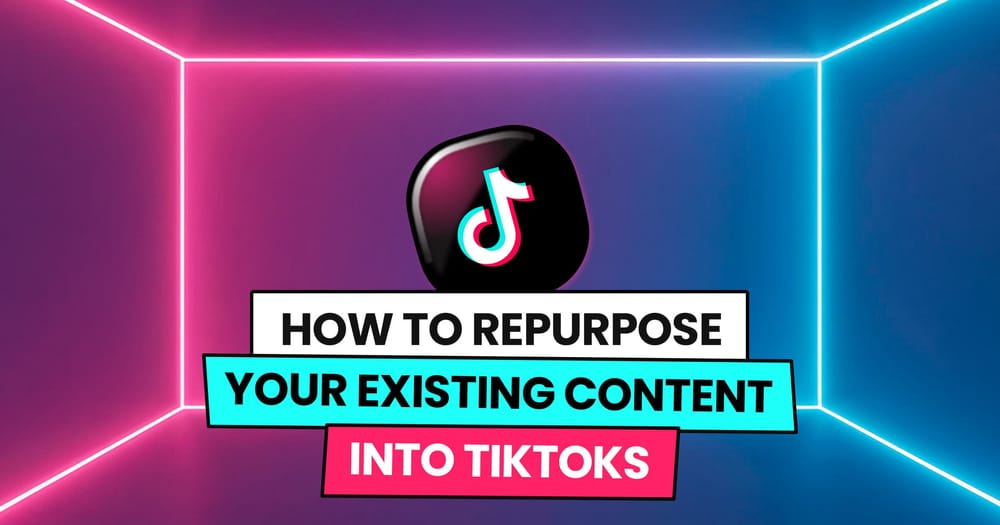Managing different campaigns for different clients from different industries is a daunting and overwhelming job. Many social media management agencies fall trap of running general social media campaigns for clients each with a different niche and marketing needs. Others, however, succeed in creating unique and targeted organic content that better suits their client’s brand identity.
There are a few practices every social media management agency should live by. These practices make the most out of your resources while still creating curated content for your client’s social media platforms.
Table of Contents:
- Understand your Client's Needs and Deep Dive into their Industry
- Set Attainable Goals for your Campaigns
- Keep your Hashtag Game Fresh
- Analyze and React
- Automate, Schedule, and Recycle as Much as Possible
Understand your Client's Needs and Deep Dive into their Industry
Understanding your client’s industry is a determining factor of your entire strategy as it will affect everything from your content to your hashtags.
As a social media marketing agency, you will be dealing with clients from all walks of life and each looking for different things from marketing on social media. As a B2B service, you will have to get knowledgeable about different industries and their practices.
Understanding your client’s industry is a determining factor of your entire strategy as it will affect everything from your content to your hashtags. Nowadays, audiences have grown bored of the generic, cookie-cutter content most businesses are known for on social media. They want to feel like they are interacting with someone, many companies’ content doesn’t have the “human” touch, that is well-versed in their niche industry and familiar with the inside jokes.
Hiring people who understand the client's region and culture makes a significant difference. For example, if your client is from Germany, hiring locally ensures better engagement. However, international hiring can be complex. EOR services like Remote streamline the process by managing payroll, compliance, and legal requirements
I have noticed that the marketing teams for many companies lately have stayed tuned in the ins and outs of niche communities on the internet. One perfect example is this tweet from Tumblr that cements the status of Goncharov as the greatest movie ever, if you know, you know. This kind of interaction with an audience online is what generates engagement and creates a sense of brand loyalty.
Besides understanding your client’s industry, you will also need to understand their needs as a brand. This will allow you to hone in on your strategies. Inquire about what metrics your client what to focus on and draft your plan accordingly. Running a social media marketing strategy for an e-commerce seller looking to generate sales is not like running one for a creator hoping to boost engagement and drive-up follower count.
Set Attainable Goals for your Campaigns
Whether you want to drive traffic to a website or increase brand awareness, your goals must be SMART.
Before starting the hard work of creating and sharing content on your client’s socials, take a step back and set attainable goals based on what you have to work with and your client’s needs.
Whether you want to drive traffic to a website or increase brand awareness, your goals must be SMART.
Specific: The more specific you can be the better. Point down exactly what you want to accomplish to a T.
Measurable: Qualify your goals to make them easy to track and assess your progress from start to finish.
Attainable: You will have to set realistic goals that are achievable with the resources and time you have set aside for your project.
Relevant: Once again, you will have to understand your client’s needs and whether these goals solve their problems.
Time-specific: Your goals have to be bound to a timeframe to properly assess the success of your social media marketing strategy.
Always try to think big but at the same time not overreach. You don’t want to disappoint your client with unfulfilled promises.
Keep your Hashtag Game Fresh
Social media requires continuous education as new hashtags emerge and algorithms develop.
Popular hashtags and trends keep changing daily as audiences interact with new developments in their industry. Some agencies stick to their tried and tested hashtags without accounting for the season and what is trending on social media. This could be a fatal mistake.
Hashtags are basically a way to participate in a group conversation and get discovered by an interested audience. If you are not using the appropriate hashtags at the appropriate time to engage with your client’s audience then this will affect your overall strategy. Social media requires continuous education as new hashtags emerge and algorithms develop.
Analyze and React
Analytics is a big component of every social media campaign. It affects your strategy from beginning to end. Some social media marketers fail to react proactively to what the data tells them.
Analytics will determine what platform/s to focus on, what type of content the audience love, the best time to post, and how certain hashtags affect reach. This will help you determine if making small tweaks or changes is necessary to accomplish your goals.
Take it step by step and continue social listening as well as assessing analytics to determine your next move.
Automate, Schedule, and Recycle as Much as Possible
One of the best practices you can adopt as a social media agency is delegating tasks to capable social media management tools.
Running a social media campaign, let alone multiple at the same time, could be draining. One of the best practices you can adopt as a social media agency is delegating tasks to capable social media management tools.
The need for accessible social media marketing for both big and small agencies has bought with it tools like Nuelink. Nuelink is a multipurpose social media tool that allows you to automate everything from blogs and YouTube videos to product listings.
You can also schedule weeks' worth of content in one setting and recycle content by cross-posting it on different social media platforms. These features, among others, are a set-it-and-forget-it way to keep an audience engaged with relevant content while you work on creating content for your clients.
Social media management is a lot of work even for seasoned social media marketers. What could be right today, could become useless tomorrow as audiences move to the next big thing and algorithms adapt accordingly. These practices, however, are set in stone since they help you trade this very uncertain industry.






